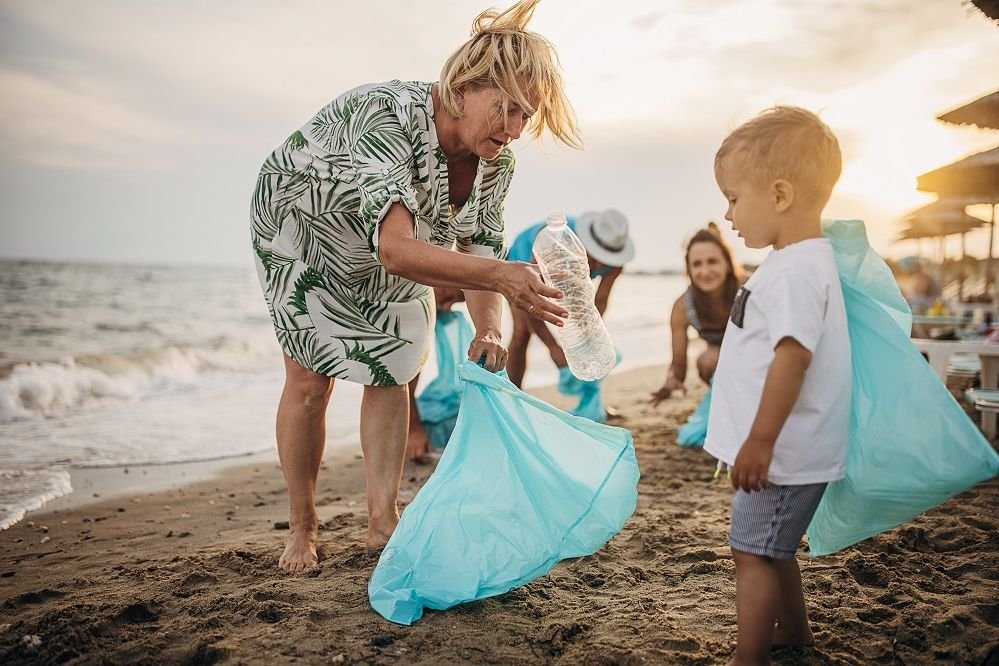The enzyme that eats plastics for breakfast. It can solve our pollution crisis
Australia is establishing its first recycling facility using enzymes to convert plastic into compostable materials for recycled packaging.

Key points
- Plastic waste is polluting the world’s environment.
- An enzyme-eating solution could be the answer.
- An Australian company is investing $54 million in the nation’s first enzyme-process facility.
It is one of the world’s biggest environmental problems. What to do with the plastic rubbish filling dumps and polluting the natural environment?
A new enzyme variant could supercharge recycling, enabling industries to reduce their environmental impact by recovering and reusing plastics at the molecular level, establishing what experts are calling; a circular plastics economy.
The most common method for disposing of plastic — aside from throwing it in a landfill — is to burn it. That is costly, energy-intensive and sends noxious gas into the air.
Other alternative industrial processes include the energy-intensive processes of glycolysis, pyrolysis or methanolysis.
Biological solutions take much less energy. Research on enzymes for plastic recycling has advanced during the past 15 years.
A barrier has been how to make enzymes that could operate efficiently at low temperatures to make them both portable and affordable at large industrial scale.
Enzymatic recycling uses genetically modified microorganisms to break down the polymer chains that make plastic into its building blocks, which can be remade into plastic. In theory, a bottle made this way could be recycled indefinitely.
The plastic problem
Since the first factories started pumping out polyester in the 1950s, an estimated 9.1 billion tonnes of plastic has been produced. But, of each year’s 317 million tonnes, less than 10 per cent is recycled. The rest ends up in landfills, waste incinerators or nature. Microplastics have been found in penguins, breast milk, bottled water, human blood, and on the summit of Mount Everest. Most plastic will never decompose.
Even recycled plastic is destined for the dump. Conventional, thermomechanical recycling — where plastic is ground into flakes, melted, and moulded anew — yields plastic that is more brittle and less durable than its originator.
It is difficult to use the material more than three times.
Australian start-up company Samsara Eco plans to invest $54 million to build its first commercial facility in Melbourne.
The goal is to process 1.5 million tonnes of plastic by 2030.
A key motivator for exploring an enzyme-eating solution is that Europe has rolled out minimum recycled content mandates, which have sparked demand for managing plastics pollution.
Australia has agreed on national packaging targets to make 100 per cent of packaging reusable, recyclable or compostable by 2025 and 70 per cent of plastic packaging recycled or composted by 2025.
But only 16 per cent of plastic packaging is recovered now.
Samsara’s investors include the Clean Energy Finance Corporation and Woolworth.
The company says it will save an estimated 3 tonnes of carbon emissions for every tonne of plastic recycled by the process.
Other companies across the globe are using enzymes to break down plastic, but Samsara claims it uses a different process and enzymes. It says it can deliver the full depolymerization of plastic in an hour, while most other enzymatic processes take more than 12 hours.
CEO Paul Riley says the current approach to recycling is inefficient and ill-equipped to handle the plastic pollution crisis.
“Instead of mining for fossil fuels to create new plastics or relying on current recycling methods which result in only 9 per cent being recycled, we can take plastic that already exists and infinitely recycle it.”
For further reading: AFR, Scitech Daily, Channels, Samaraeco








